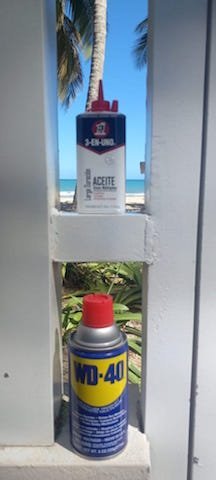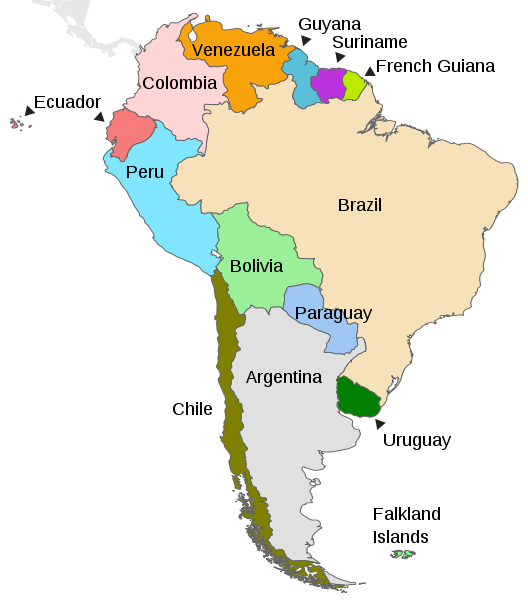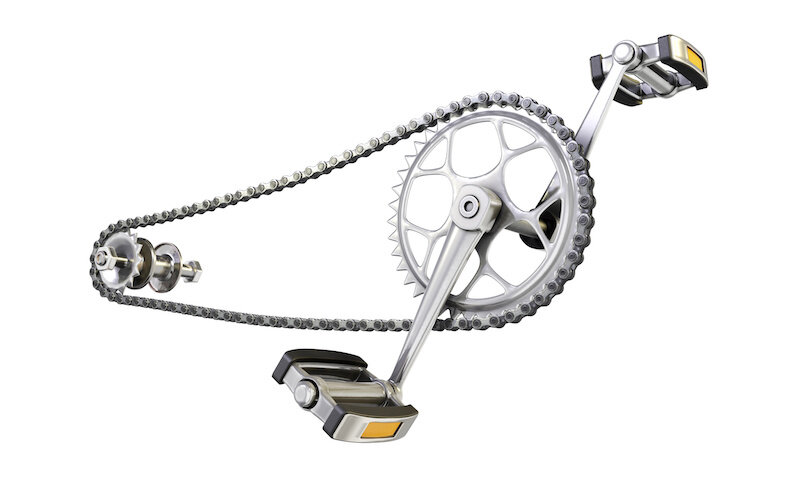“Many variables, from your riding style to geographic location will determine your maintenance requirements. The longer you neglect maintenance, the more it becomes critical. ”
Service schedules and checklists provide only general guidelines. Specific mountain bike maintenance requirements are particular to each rider. However, keeping your bike clean and properly lubricated with a few periodic checks go a long way in extending the life and performance of your MTB.
Below, is the maintenance schedule from the Santa Cruz User Manual and Yeti Cycles Owner’s Manual. Both of these manuals provide standard industry recommendations.
For a more in-depth schedule, keep reading.
Source: Santa Cruz Bicycles User Manual
Source: Yeti Cycles Owner’s Manual (Yeti SB115, Full suspension carbon frame MTB)
How often to service mtb suspension
“When you inspect a fork, remove the front wheel, clean the mud off”
If you are a regular mountain biker and ride steep, technical terrain, having your suspension serviced every 20 - 40 rides is recommended.
For more recreational styles of mountain biking, once per year during an annual overhaul/tune-up is suggested.
Service recommendations from RockShox Owner’s Manual (front Fork):
Every Ride: Clean dirt from upper tubes and wiper seals
Every 50 Hour: Perform lower leg service
Every 200 Hours or Yearly: Perform damper and spring service
Maintenance intervals from RockShox Owner’s Manual (rear shock):
Every Ride: Clean dirt from shock damper body
Every 50 Hours: Perform air can service
Every 200 Hours: Perform damper and spring service
every ride
“MOUNTAIN BIKES NEED FREQUENT CLEANING, MAINTENANCE AND INSPECTION. Clean your bike after every ride and conduct a pre-ride inspection before every ride. ”
Check Tire Pressure
Use gauge, if not, squeeze sidewall at minimum
Wipe Down, Bike Chain & Re-lube
Make sure all excess lubricant is wiped off
If your bike is gritty or dirty or if you rode through mud/rain, then a more in-depth washing/cleaning will be necessary
Bounce Bike
Listen for any odd noises, rubbing sounds, creaks, or rattles, such as a loose headset
Check Suspension System Settings
Make sure the suspension system is set-up for your weight and the day’s riding conditions
Air shocks gradually lose pressure….just like tires
Inspect Frame & Components
Look for signs of stress, such as scratches, dents, cracks, or color deformation and make sure all components are securely attached
Examine tires for thread cuts
Check for Smooth Shifting
Every 5 - 10 rides
“ANY PART OF A POORLY MAINTAINED BIKE CAN BREAK OR MALFUNCTION LEADING TO AN ACCIDENT”
Bolt Check to Torque Spec
Check all bolts, pedals, and accessories to make sure that all fasteners are tightened to manufacturer torque specifications
Do you need a torque wrench? The answer is yes…for more info check out my article on torque wrenches for mountain bikes
Wash/Clean Bike & Lube Chain
Keep your bike clean. Dirt CAUSES wear faster than anything else
Perform an in-depth cleaning with emphasis on the drivetrain
Make sure to wipe off excess lube after application
For more info, read my article about “Cleaning Mountain Bikes”
Check for Chain Stretch
You can use a chain checker tool or a ruler
A worn chain will damage the cog teeth
For a more in-depth review, read my article, “How Often Should I replace my MTB Chain?”
Inspect Brake Pads
Check for wear & alignment
Check Suspension for Wear
Lubricate Suspension Pivots
Lube Pedal Bindings
If riding clipless pedal system
Every 20 - 40 Rides
“Every 25 (hard off-road) to 50 (on-road) hours of riding: Take your bike to your dealer for a complete checkup.”
Check Tire Tread & Sidewall Integrity
Nothing derails a ride as quickly as a flat tire
Low tread or cracked sideways both indicate it’s time for new tires
Check the Conditions of Spare Inner Tube
Also, a good time to make sure your emergency tools/gear are still in your pack
Check Wheels for Trueness & Condition
Correct as needed (or bring to a professional as a mistake here will make the tire highly susceptible to catastrophic failure)
Service Front & Rear Shock
Perform air sleeve service (or have serviced at shop)
Drain & replace fork fluid and replace seals
Remove & Re-Grease Seatpost
Overhaul Pedal Bearings
Overhaul Derailleur Jockey Wheel Bushings & Seals
every 80 - 150 rides
“MOUNTAIN BIKE RIDING IS VERY DIFFERENT FROM RIDING A BIKE ON THE ROAD.”
Fork & Rear Shock Need Damper Servicing
Take to shop or send to rebuild facility
Check Tire Sealant Level (if you have tubeless tires)
Add more sealant if low
Overhaul Bearings
Hubs, Bottom Bracket, Pedals,
Bleed Hydraulic Brakes
If brake performance has dwindled even though rotors and pads are good it’s time for a brake bleed
Replace All Cable Housing
Brake, shifter, and dropper post cables
Annually
Yearly Complete Overhaul
Disassembly of the complete bike. Clean and re-grease all threaded components upon reassembly
Inspection of your entire bike. This means inspecting the frame, suspension, all components, and repair/replace parts as needed
Degrease drivetrain & replace chain
New handlebar grips
Every 3+ years
Replace
Handlebars
Fork & rear shock
Saddle
Seatpost
Stem
Final Thought
Calvin Jones, from ParkTool, says in the Big Blue Book of Bicycle Repair (BBB3):
“The idea of a schedule of maintenance is that it will encourage you to check certain items on a regular basis. No two bikes are used in identical conditions, and your bike may benefit from more checking than a list suggests”
The previous quote was from the 2013 edition of the BBB. The 2019 edition, the BBB-4, has eliminated the maintenance schedule. However, as Calvin Jones noted, checking components regularly, is a good idea, since there are no “one size fits all” rules to MTB maintenance intervals.
While many of the servicing recommendations require special tools and knowledge, the 3 most important routine maintenance tasks are simple and easy enough that almost anyone can do them:
Regular washing/cleaning of your bike
Keeping the chain clean and properly lubricated
Keeping all bolts/fasteners torqued to spec (loose parts will lead to all sorts of problems…..and fast)
If you can do these 3 simple maintenance steps, you will significantly prolong the lifespan and performance of your mountain bike.
Jesse is the Director of Pedal Chile and lives in La Patagonia. Jesse has a Master of Science in Health and Human Performance and a Bachelor of Science in Kinesiology. Hobbies: Mountain biking, reading, researching, weight-lifting, craft beer, and making hot sauces.
Sources for: “how often to service mountain bike”
Cannondale Bikes (n.d.). Bicycle Owner’s Manual. [online]
C Calvin Jones (2013). Big blue book of bicycle repair : a do-it-yourself bicycle repair guide from Park Tool. Saint Paul, Mn: Park Tool Co.
C Calvin Jones (2019). Big blue book of bicycle repair : a do-it-yourself bicycle repair guide from Park Tool. Saint Paul, Mn: Park Tool Co.
RockShox Inc. (n.d.). Service Manuals. [online] www.sram.com.
Santa Cruz Bicycles (2017). SANTA CRUZ BICYCLES 2017 User Manual. [online]
Specialized Bicycle Components (2007). OWNER’S MANUAL SPECIALIZED BICYCLE. [online]
Wiggins, C. (2014). Bike repair & maintenance. New York, New York, Usa: Alpha, A Member Of The Penguin Group (Usa) Inc.
Yeti Cycles (n.d.). OWNER’S MANUAL YETI SB115. [online]
Zinn, L. and Telander, T. (2018). Zinn & the art of mountain bike maintenance : the world’s best-selling guide to mountain bike repair. Boulder, Colorado: Velopress.




































